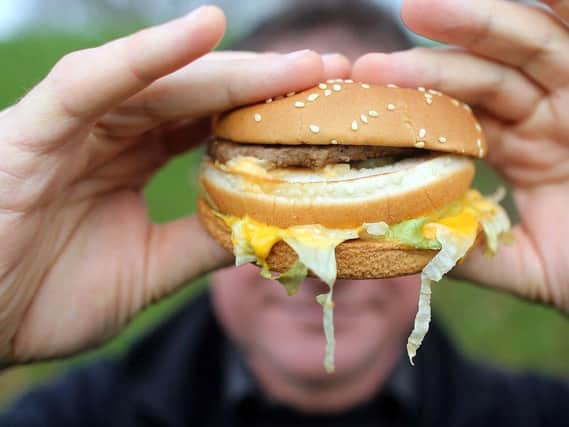Voices of the Future: Why the weight watershed won't work - it's not the wake-up call we need


The watershed is to be extended next year to include junk food in the pre-9pm ban on unsuitable material. The move is intended to crack down on obesity, but how effective can these new rules really be?
Foods that are high in fat, salt and sugar (HFSS) will fall under the same restrictions that Ofcom uses to regulate content featuring sexual acts, violence and swearing.
Advertisement
Hide AdAdvertisement
Hide AdIt was announced recently by the Government that the partial ban is another ‘step’ in an ongoing attempt to tackle obesity in the UK.
We all know that advertisements which contain contraceptives and distressing imagery don’t reach our screens until the kids are in bed – supposedly at 9pm.
Now unhealthy food is to be covered by the UK’s watershed as it is thought it will reduce the obesity crisis. One in three children leaving primary school are currently overweight, as well as two-thirds of adults in England.
Not so long ago, Prime Minister Boris Johnson was criticising the sugar tax – until he was hospitalised in April 2020 and realised that he himself was overweight. Then in August that year, we were all tempted with a 50 per cent discount in the Eat Out to Help Out scheme.
Advertisement
Hide AdAdvertisement
Hide AdNow the watershed changes mean cheap and cheerful, family-friendly fast food establishments will no longer be able to reach viewers until later at night.
Small businesses with less than 249 employees can still tempt their viewers to buy a greasy burger though. The restrictions will not apply to audio either, so we might still hear Snoop Dogg promoting takeaway deliveries after all.
While we might well have campaigns to help people lose weight and get active like ‘wake-up call’, the idea of reducing obesity among children by pushing junk food adverts back until after the watershed feels far-fetched.
If larger businesses can continue as normal on their own websites and social media platforms, all that’s needed to see those adverts is access to the internet.
Advertisement
Hide AdAdvertisement
Hide AdThere are too many exemptions that make seeing such adverts unavoidable. Even then, isn’t it the adults in the house who buy the food, clothes and toys for the children?
Whether it’s a hoverboard, Pop It or the latest game for their console, toy adverts aimed at little ones generally result in them asking their parents to buy an item. Those adults in their lives have the ultimate decision.
So in reality, a child seeing fast food establishments promoting their products before 9pm does not necessarily fuel the obesity crisis among children.
While advertisements might give you ideas when deciding what’s for dinner, their absence until 9pm isn’t going to stop a McDonald’s from being ordered if you feel like a Big Mac.
If the Government thinks that advertisements involving foods classed as HFSS are a major contributing factor to the UK’s obesity rate, then perhaps they should be scrapped altogether.
Comment Guidelines
National World encourages reader discussion on our stories. User feedback, insights and back-and-forth exchanges add a rich layer of context to reporting. Please review our Community Guidelines before commenting.